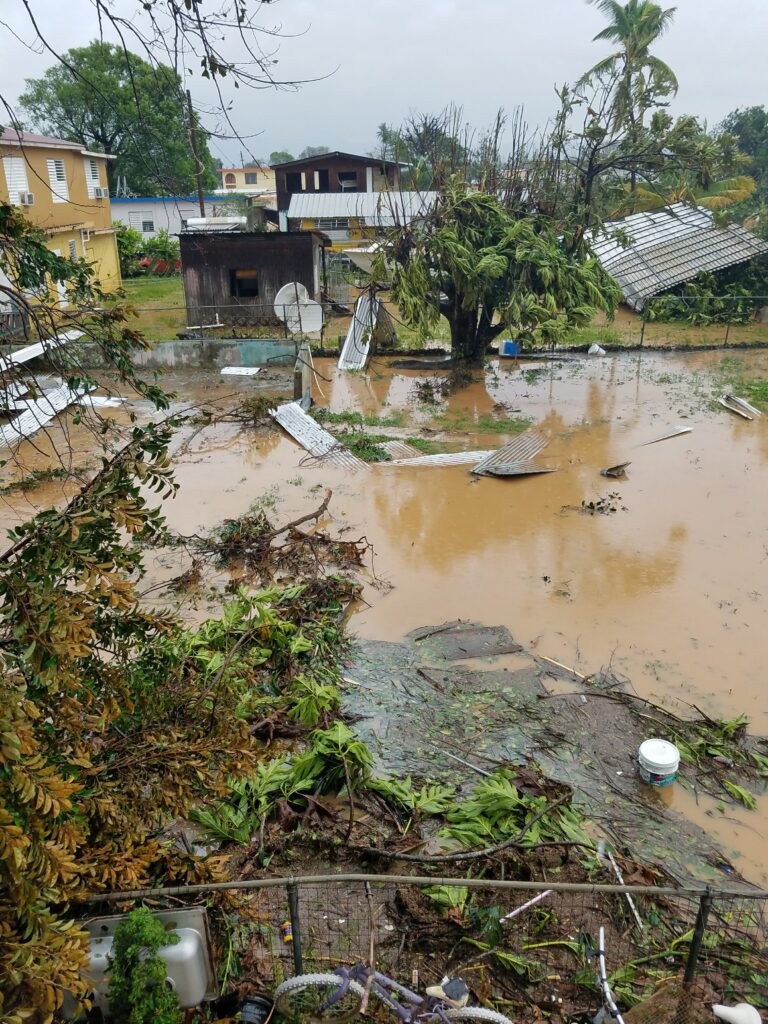MHS students feel impact of hurricane season
Drew Hoffmaster | The Chronicle
The impacts of hurricanes blow far beyond the coast.
Every year, destructive hurricanes engulf the coast of the United States between the months of June and November. They carry large amounts of rain, wind and storm surge that hammer the coast for a few days, causing many deaths and injuries. According to the National Weather Service, five hurricanes make landfall in the United States in an average three-year period, causing millions to have to shelter in place or evacuate their homes.
This hurricane season already had two storms hit the United States – Hurricane Hillary and Hurricane Idalia – which made landfall last month. Hurricane Hillary made landfall in Southern California, and Hurricane Idalia hit the West Coast of Florida.

Although hurricanes may only cause some extra rain in Mason, many students and their families feel their impact. Senior Hope Johnson has an aunt, uncle, grandparents and friend living in Florida. When Hurricane Ian – which caused about $112 billion in damage – hit in 2022, Johnson’s grandparents decided to temporarily stay in Mason with her family. When her grandparents returned to Florida, they discovered their home was destroyed and struggled to recover.
“It was like they could not do anything to fix it,” Johnson said. “It’s hard for them to access insurance and figure that all out when they’re up here.”
Johnson’s aunt and uncle also have experienced a large amount of destruction due to hurricanes. She said her aunt and uncle had to move because their old house used to always flood when a hurricane would hit, which has left her wishing she could do something to help them.
“All the [hurricanes] are all out of my control,” Johnson said. “The damage is out of my control. There’s nothing I can do. I feel almost helpless in a sense because there is all this damage and I can’t do anything.”
Johnson continues to worry about her family during this season and calls them frequently to check up and make sure they are okay. She said she could not imagine how stressful it would be to go through a storm.
“Just seeing them all bunkered down stresses me out a lot because I do not know what is happening all the time,” Johnson said. “It’s really stressful to have the people you love put in a position that causes a lot of risk and danger.”
Senior Nestor Reyes’s family lives in Puerto Rico and Florida, both of which often experience hurricanes. He said his family often chooses to stay put when hurricanes come through due to the large number they have experienced.
“I feel pretty worried and scared whenever a hurricane is going towards Puerto Rico,” Reyes said. “But I also know at the same time they’ve been through hurricanes before so they should know what they are doing.”
Reyes’ family has ridden out many noteworthy hurricanes like Hurricane George and Hurricane Maria. Even though his family stays in place, Reyes said his parents try to help by sending extra essential supplies to relatives after hurricanes to provide a bit of aid.
“We always ask how they’re doing and whether or not they want to come here for a bit, but they usually decline,” Reyes said. “But when my parents send supplies, I kinda feel reassured.”
According to Reyes, the people of Puerto Rico have adapted to the storms in a multitude of ways. The architecture is designed to weather the storms, and the people are used to being without electricity for days. Reyes said he is amazed by how creative his family can be during storms.
“My mom went through Hurricane George, and it was a pretty big one,” Reyes said. “[She] said that they would sometimes go and just shower with the hurricane because they didn’t have water.”
Sophomore Koby Carson’s great-grandmother moved into a trailer in Fort Myers, Florida back in 2019. He said his great-grandmother wanted to escape Ohio’s cold weather but never expected hurricanes to be a problem.
“We weren’t thinking that [hurricanes] were going to be that destructive,” Carson said. “[We thought Ian] would just cause rumble, and it’ll be safe. But no, it destroyed everything.”
Carson’s great-grandmother, after some convincing, evacuated to Tennessee. Once she returned to Fort Myers, she could not find anything to salvage. Many of the Carson family’s heirlooms and memories were lost.
“There were a lot of memories that I haven’t gotten to explore,” Carson said. “I was bummed because it was sad to see a lot of family history just poof gone from a natural disaster. It was kind of sad for the whole family.”
After picking up the pieces, Carson’s great-grandmother moved to North Carolina where Carson has some aunts and uncles living. He said he still worries about his great-grandmother and the rest of his family whenever hurricanes threaten the coast, but he is confident in his family’s community and resilience.
“[My family] is all looking out for each other, making sure everyone is safe and sound,” Carson said. “We are always open to help family and only want the best for them.”
